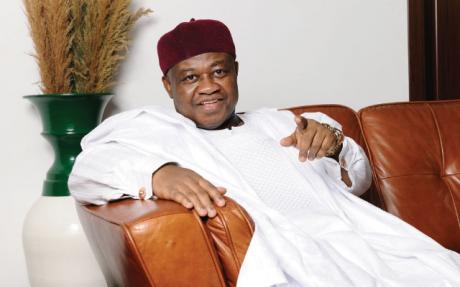Sam Nda-Isaiah, the Founding Chairman of LEADERSHIP, fondly called Uncle Sam, would have been 62 today, May 1. As his family, friends and indeed, the entire LEADERSHIP family mark his 62nd posthumous birthday, we share with our readers, one of his numerous commentaries on Nigeria as published on his column, The Last Word in March 2009.
Last week, I raised the alarm that the naira had precipitously fallen to N163 to a dollar. I also discussed the danger that portends for an import-dependent country like Nigeria. But I figured I was addressing leaders who didn’t care. And the situation responded appropriately. By Thursday morning, it had become N172 to a dollar; and, by the evening of the same day, the dollar was selling for NI75. It was at that point that I lost count. Because the dollar was scarce last week, it was difficult to keep up with the free fall of the naira. In some places, the dollar had spot prices.
What that clearly meant was that, last week, most Nigerian businessmen could not plan. Some of those who depended on importation had to put on hold further business transaction until things got clearer. While all that happened, the storm of inflation was gathering.
The repercussion of the ongoing foreign exchange crisis will be felt for a very long time to come. But the problem is that there appears to be no light at the end of the tunnel. This tunnel, sadly, looks like an abyss. Some speculators have even envisaged that the naira would depreciate to as low as a N200 to a dollar.
But there’s another bad piece of news. Last week also, President Umaru Yar’Adua finally unveiled his economic plan, which is clearly an unmitigated disaster for the people of Nigeria. The government finally went for total deregulation. This comes at a time the parents and godfathers of deregulation themselves in the capitals of Europe and the United States are holding back or tampering with their own unrestrained belief in the principles of capitalism. The week that Yar’ Adua announced his own total deregulation magic was the same week that the United States government nationalised Citibank. Before then, the new government in the United States had hinted that, because of the crisis in their economy, the government would now be involved in more regulation. Ditto for the governments in the United Kingdom, France and most of Europe.
Every civilised person agrees that that is the only way to go at this point in time. At a time of crisis like this, only government has the wherewithal to give the kind of big push that will be required as a response to the dire situation. It is very difficult to know where Yar’ Adua and his men are coming from. To inject more deregulation into the system at a period of the free fall of the naira and economic recession only shows how mean, wicked and cold-blooded the Nigerian government is. Our leaders force themselves on us and then punish us further.
The president believes that more investors will bring in their hard-earned funds to build refineries to refine Nigeria’s crude within Nigeria. But it will really take a lunatic investor to bring the kind of money that is required to build a refinery to invest in the country if he has to provide his own power supply and other infrastructure. Besides, is it not this same Yar’Adua that declared at the beginning of his tenure that he was going to make the refineries work? What has changed since then? Is our president confused?
What just happened with the unveiling of the president’s economic plan last week is a confirmation of the thinking in some quarters: it is not just that the president doesn’t know how governments work, but he doesn’t really know why governments exist. Last year, he did not implement the budget even though the money was available; and this year, he is reneging on some of the well-accepted responsibilities of government. In a crisis situation like the type we have on our hands, bigger governments are required. But it is at a time like this that our own government wants to hands off the economy and watch from a distance.
Now that the federal government no longer buys drugs and medicines for public hospitals, has stopped building schools to educate our children, has failed to provide security of life and property, has removed subsidy on petroleum products in the name of a no-longer-fashionable deregulation policy, and has decided and openly told the nation- that it would not intervene in the collapsing capital market, would it not make more sense to simply privatise the government and sell it off to the highest bidder? A friend was quick to remind me that that has, in fact, been done. The people in Aso Rock today didn’t get there through our votes. They bought the presidency and are still there in spite of all we know. So why should they be compassionate, he asked?





